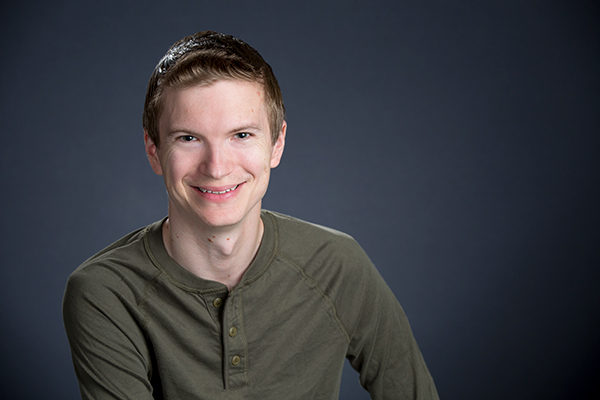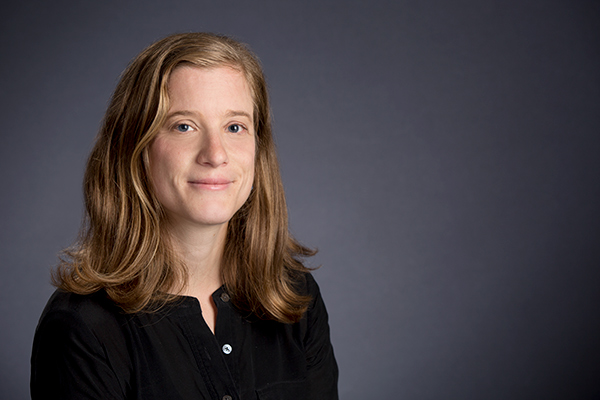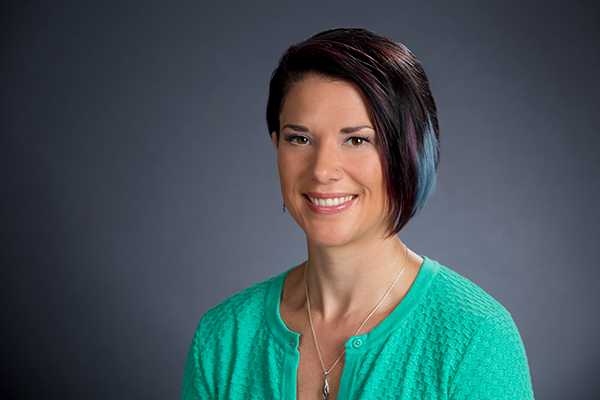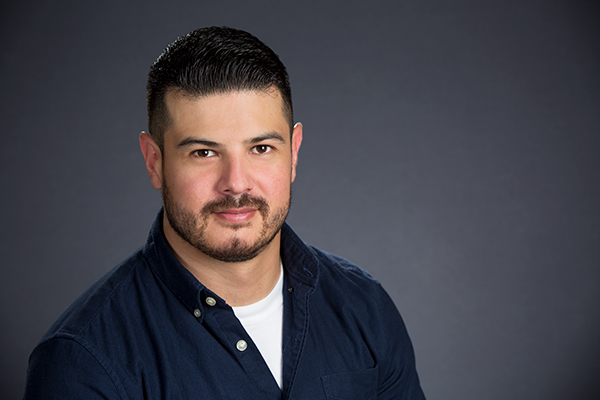The College of Education is happy to welcome 15 new faculty members for the 2017-2018 academic year. This year, the Department of Kinesiology and Health Education is joined by Nicholas Enge, Sophie Lalande, Liesl Nydegger, and Miguel Pinedo.

Nicholas Enge
What institution were you most previously with and what was your role?
Previously, I was a Lecturer at Stanford University, where I was involved in teaching a wide variety of courses with topics ranging from public speaking to electric vehicles to social dancing.
What are your teaching interests?
Here at UT, my focus will be on teaching a little bit of every kind of social dancing from the 19thcentury to present and around the world. While the primary focus of my classes will be preparing students to go out into the world and dance the social dance forms that are most popular today, I also want to give them a bit of the greater context: where these dances came from, where they might be going, and how they fit into the overall family tree of social dances.
What sparked those interests?
The social dance program that I aim to build at UT is modeled after the wildly successful program that has been developed over the past several decades by my mentor Richard Powers at Stanford University. At Stanford, the social dance classes are an absolute “must-take.” After stupidly putting off taking the classes for four years in my undergrad, I finally gave in, and immediately fell in love with them. Ever since, I’ve dreamed of building such a program myself, and here I am, living the dream!
What are you excited about for your new position at UT?
There are many things that I’m excited for, but I’m particularly excited to see the students grow. It’s always amazing to see the transformations that occur over the course of the semester in a social dance class, as students really begin to develop their confidence, not only on the dance floor, but in the rest of their lives as well.
Is there anyone in the department or program whom you wanted to work with or who inspired you to join us?
Four years ago, my wife Melissa and I were invited to teach a waltz workshop here at UT, and we were extremely impressed with the passion and dedication of the 30-or-so class assistants (CAs) who volunteer to assist the social dance program here. When I arrived, I was glad to see that this CA tradition is still going strong, and I’m super excited to be working alongside the CAs to keep the UT social dance scene growing.
What do you hope to contribute to College of Education or the Austin community?
In addition to spreading the joy of social dancing through my classes, I also want to study what makes it so joyful. In 2013, I co-authored a book with Stanford social dance instructor Richard Powers in which we cite hundreds of scientific studies that strongly suggest that social dancing has a wide variety of benefits. But to make our case, we often had to extrapolate from research in other contexts. Here at UT, I want to go one step further and design new studies that will replicate these exciting findings more directly in the context of social dancing.
What is your starting date?
August 30, 2017.

Sophie Lalande
What institution were you most previously with and what was your role?
I was an Assistant Professor in Exercise Physiology in the School of Exercise and Rehabilitation Sciences of the University of Toledo in Ohio.
What are your research interests?
My research interests are centered on determining the limiting factors to exercise capacity in both healthy individuals and clinical populations. One of the main objectives of my research program is to determine the acute response and chronic adaptations of the cardiovascular system to exercise and environmental stressors in patients with type 2 diabetes.
What sparked those interests?
During my undergraduate degree at the Université de Montréal in Canada, three courses sparked my research interests: Physiology of Exercise, Environmental Physiology and Physical Activity for Special Populations. These three courses accurately represents the background for the research studies that I perform in my Clinical Exercise Physiology Laboratory.
What are you excited about for your new position at UT?
I am excited to continue to develop my research program in a research-intensive institution and to contribute to one of the best Kinesiology graduate programs in the nation. I am also excited about the many possibilities for collaborations with exercise physiologists, health educators and clinicians, and to have access to state-of-the-art research facilities.
Is there anyone in the department or program whom you wanted to work with or who inspired you to join us?
I was familiar with the high-impact research performed in Exercise Science, but I was inspired to apply to this position by Dr. Audrey Stone, a recent hire in the Department of Kinesiology & Health Education, who has been thrilled with her position at UT Austin.
What do you hope to contribute to College of Education or the Austin community?
I plan to be a contributing member of the College of Education by sharing my knowledge, expertise and enthusiasm for my field of research. I also plan to create exciting collaborations that will hopefully result in research that will impact the field of exercise physiology. Finally, I hope to enhance the quality of life of Austinites by performing research studies and exercise training interventions in clinical populations.
What is your starting date?
August 1st, 2017

Liesl Nydegger
What institution were you most previously with and what was your role?
Prior to UT, I was at the Center for AIDS Intervention Research at the Medical College of Wisconsin. I was awarded and completed a 2-year Ruth L. Kirschstein Institutional National Research Service Award Postdoctoral Research Fellowship.
What are your research interests?
My research interests include sexual health, specifically HIV and sexually transmitted infection (STI) prevention, among vulnerable and underserved populations such as illicit drug users and racial/ethnic minorities who experience health disparities. Specific areas of focus include intimate partner violence, childhood sexual abuse, substance use, pre-exposure prophylaxis adoption (PrEP) among women, and evidence-based interventions.
What sparked those interests?
I have always been very passionate about HIV prevention and sexual health. The majority of my graduate school career I worked with convicted drug users, most of whom were men, and promoted condom use. This led me to want to focus my research on women who may not necessarily be able to negotiate condom use due to past or current experiences of violence.
What are you excited about for your new position at UT?
I am excited about the collaboration opportunities both within and outside of my department. UT seems like such an exciting and innovative place to conduct research and I cannot wait to get started and begin working with the amazing researchers in which I am surrounded.
Is there anyone in the department or program whom you wanted to work with or who inspired you to join us?
I think the better question is who couldn’t I work with? Everyone in my department has very unique skill sets that I could work with. Specifically, I was drawn do Dr. Julie Maslowsky because of her work with substance use and mental health, Dr. Mary Steinhardt and her work with resiliency, and Dr. Karen Pasch because of her expertise in developing prevention interventions.
What do you hope to contribute to College of Education or the Austin community?
I hope that I am able to contribute to the College of Education by publishing peer-reviewed manuscripts in high quality journals and getting my research funded. I hope to contribute to the Austin community by conducting meaningful research that will improve the lives and health of people who live in Austin and are affected by my research.
What is your starting date?
8/18/2017

Miguel Pinedo
What institution were you most previously with and what was your role?
I was previously a postdoctoral fellow at the Alcohol Research Group & UC Berkeley School of Public Health.
What are your research interests?
I am interested in better understanding how migration impacts the health of populations, primarily among Latino communities in the US and Mexico. My work explores how migration-related factors and different migration experiences (e.g., international, domestic, deportation) shape vulnerability to alcohol and substance abuse, HIV risk, and related harms.
What sparked those interests?
Being the son of Mexican migrants, migration was always prominent discussion in our household. As an undergrad, I participated in a field research training program where I interviewed migrants in Mexico and California and saw first hand how migration-related factors (e.g., long family separations, social isolation, traumatic migration experiences) shaped risk behaviors. I’ve been focused on advancing this line of work since.
What are you excited about for your new position at UT?
Of course! I’m extremely excited about this new position and to be joining the UT family!
Is there anyone in the department or program whom you wanted to work with or who inspired you to join us?
I was really impressed by everyone in the department and college; everyone is doing very innovative and meaningful work.
What do you hope to contribute to College of Education or the Austin community?
I am enthusiastic about contributing to the scholarly growth of the College of Education, both through teaching and research. My goal is to provide a new perspective on health disparities by highlighting the importance of migration as a social determinant of health.
What is your starting date?
September 1st

